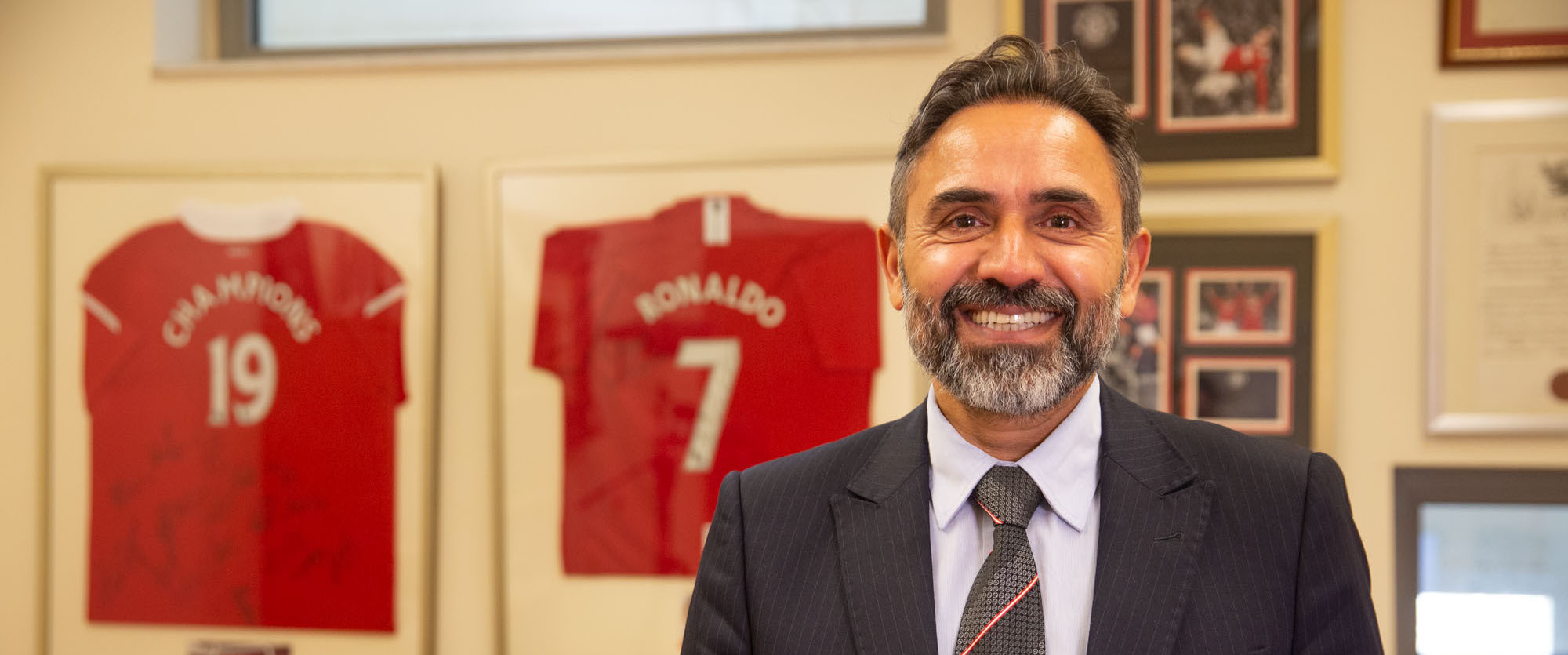WCM-Q diabetes researcher ranked among world’s best
 Clinician and researcher Dr. Rayaz Malik of WCM-Q has been ranked one of the most influential diabetes researchers in the world by an independent body.
Clinician and researcher Dr. Rayaz Malik of WCM-Q has been ranked one of the most influential diabetes researchers in the world by an independent body.
Weill Cornell Medicine-Qatar (WCM-Q) clinician and researcher Dr. Rayaz Malik has been ranked among the world’s leading experts in the fields of diabetic neuropathy and diabetes complications.
Dr. Malik, professor of medicine and assistant dean for clinical investigations at WCM-Q, was ranked 7th for diabetic neuropathies (nerve damage) and 13th for diabetes complications, in a ranking of the most influential clinical researchers across the world.
This list was independently compiled by Expertscape, the world’s leading index of academic achievement and expertise in healthcare. It ranks the performance of researchers impartially, using a series of objective metrics to judge the number and quality of research papers and the impact factor of the journals in which they have been published over the last ten years. Expertscape’s analysis determined that Dr. Malik’s record of publication over the past ten years puts him in the top 0.0076 percent of 170,863 published authors for diabetes complications worldwide. Diabetes complications include heart disease, stroke, damage to the eye (retinopathy), kidneys (nephropathy) and nerves (neuropathy).
Dr. Malik said: “It is very gratifying to achieve such recognition based on approximately 280 publications since my arrival in Qatar, arising from excellent collaborations between Weill Cornell Medicine-Qatar, Hamad Medical Corporation, Sidra Medicine, and Qatar University. We believe our innovative approach to identify nerve damage is and will have a major impact on the health of people with diabetes and other neurodegenerative diseases.”
In November 2022, Dr. Malik was also awarded the prestigious Gold Medal lecture from the Gulf Association of Endocrinology and Diabetes (GAED) at their Annual Meeting in Riyadh, KSA.
In addition to his research efforts, Dr. Malik is also a practicing physician, treating patients with diabetes and endocrine diseases at Hamad Medical Corporation. Dr. Malik joined WCM-Q from the University of Manchester, UK in 2014 and retains an honorary professorship at his previous institution.
Over the past 20 years, Dr. Malik has pioneered the technique of ‘Corneal Confocal Microscopy’ (CCM). This is an ophthalmic device which enables real-time imaging of corneal nerve fibers and identifies nerve damage in a growing list of peripheral and central neurodegenerative conditions, including diabetic neuropathy, hereditary neuropathies, Parkinson’s disease, multiple sclerosis, dementia, autism and long COVID. The test takes a few minutes, is non-invasive, utilizes existing ophthalmic equipment and can be done in the clinic. It has become a powerful imaging method for early diagnosis and prediction of those who will develop or progress in their neurodegenerative disease and is also being used in clinical trials to identify a response to new therapies.